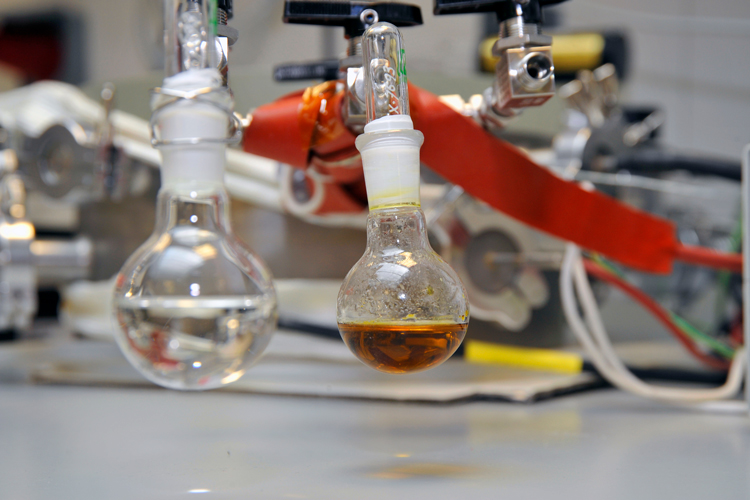Researchers from the IQS Pharmaceutical Chemistry Group and the Josep Carreras Leukaemia Research Institute are collaborating on the DisX4lymph project to look for new agents for the treatment of aggressive B-cell lymphoma.

Researchers from the Pharmaceutical Chemistry Group (GQF) at IQS, led by Dr Roger Estrada and Dr José I. Borrell, form part of the DisX4lymph project: Disruption of the tumour-stem interaction through the use of allosteric inhibitors of CXCR4 and IRAK4 degraders in personalized models of aggressive B-cell lymphoma. The main objective of this project is the computational design, synthesis, and preliminary in vitro evaluation of new therapeutic agents aimed at the dependent signalling of these proteins as potential treatments for this type of lymphoma.
The project is being carried out in collaboration with Dr Gael Roué's research group at the Josep Carreras Leukaemia Research Institute, the coordinator of the project. Both groups have been collaborating for a long time on different research projects related to haematological cancer.
Project objectives
The GQF group at IQS brings its extensive experience in the design and manufacture of tyrosine kinase inhibitors based on structures derived from pyrido[2,3-d]pyrimidines and polynitrogen derivatives for the inhibition of CXRC4. In this project, the targets are the CRCK4 receptor and the IRAK4 protein – Interleukin 1 Receptor Associated Kinase 4 – a kinase involved in the body's immune response, the inhibition of which (of its activity) has been shown to be useful for the treatment of certain types of cancer and inflammatory diseases. On the other hand, the CXCR4 receptor has been shown to be correlated with a worse prognosis in patients with diffuse large B-cell lymphoma, altering the lymphoid tumour microenvironment.
One of the project's objectives is to design a PROTAC – PROteolysis-TArgeting Chimera – that facilitates the degradation of IRAK4, leading it to the protein degradation system that the cells have. Therefore, this compound binds at one end to the IRAK4 protein, forming a reversible covalent bond, and at the other end it must be able to recognize the protein that activates the degradation mechanism, achieving the reduction of IRAK4 activity and slowing the evolution of the disease.
First, the GQF group will create virtual screening models to identify potential selective inhibitors of the targets of interest. Subsequently, this series of candidate compounds will be synthesized and their biological activity will be evaluated.
From this point, and following a continuous improvement scheme, the hit-to-lead process will be carried out to obtain derivatives that improve biological activity, maintaining selectivity towards healthy cells. The resulting inhibitors will be evaluated in vitro and in vivo by the Josep Carreras Leukaemia Research Institute group.
The DisX4lymph project has received funding within the "Knowledge Generation Projects" call for grants within the framework of the State Programme to Promote Scientific Research and Transfer, part of the Scientific, Technical, and Innovation Research Plan 2021-2023.










